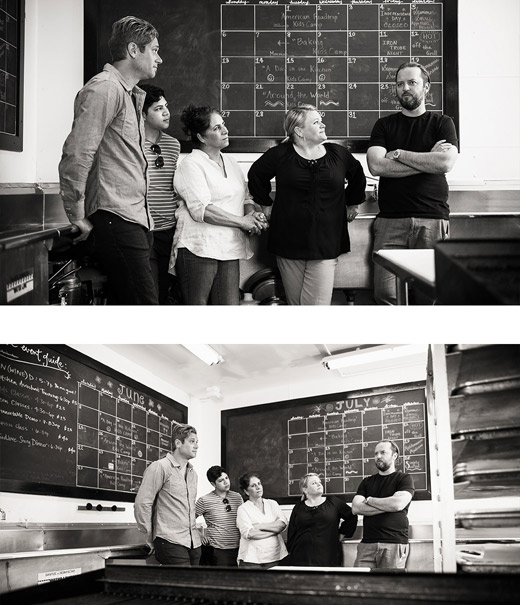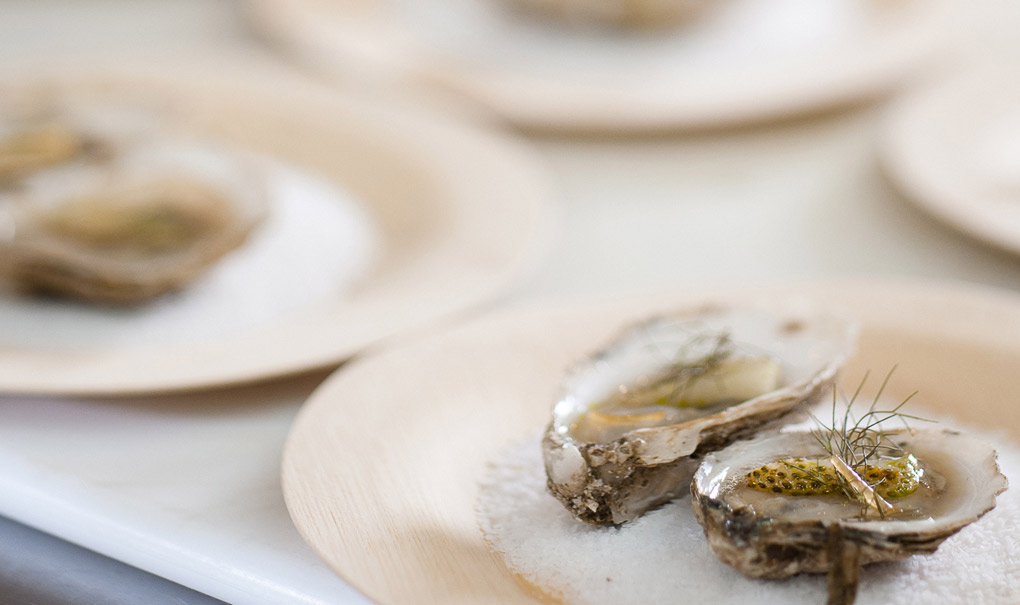
Creating Local Flavor
A new breed of chefs, both natives and transplants, are coming to Chattanooga after working in New York, New Orleans, and around the world. They are lured by our region's unique position between Atlanta, Knoxville, Birmingham and Nashville; the incredible provenance of hundreds of small family farms; and the opportunity to shape the flavor of an entire city.
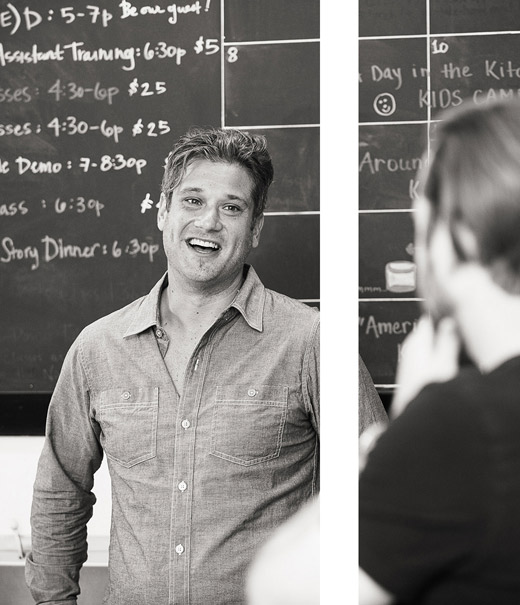
For the culinary arts, Chattanooga is a blank canvas. So says a handful of chefs and restaurateurs whose passion for food is inextricably tied to their love for the city. Individually and together, they're driving a food culture evolution, finding ways to shape Chattanooga's uniqueness into a definitive identify as a Southern food town.
Of course, for any creative, a blank canvas is both blessing and curse. It requires hard work, commitment and judgment. It carries the threat of failure. But it also holds the promise of something new, and something great.
"For a long time, Chattanooga was a city of meat-and-threes," says Erik Neil, chef and owner at Easy Bistro. "We did it well, but it was all we did. Now that's changing, dramatically."
As Erik talked with us, his hands were busy. Standing in the industrial kitchen of Dish T'Pass — a local catering company/culinary school — he plated Northern Cross and Chelsea gem oysters, dressed with candied Meyer lemon and a spring herb oil. A far cry from the meatloaf and mash our city knows so well.
Crowded around are chefs Daniel Lindley, owner of Alleia Restaurant and founding chef at St. John's Restaurant and Meeting Place;
Sarah Hooper, co-owner and instructor at Dish T'Pass; Maria Parra, owner of Taqueria Jalisco; and Maria's son, Jorge, who heads up one of the locations for the food-truck-turned-restaurant. Blue Plate Restaurant owner Rob Gentry, who couldn't stay for the soiree, furnished coolers of cold beer and champagne.
In a cutthroat industry, where competition often overshadows collaboration, this friendly gathering of professionals — small and short-lived though it may be — says something about this transformation of Chattanooga's food scene: it's intentional. There's a shared purpose.
"A lot of restaurants in Chattanooga have been working really hard to change people's minds, to show them what else is out there," Erik says. "It's like turning an aircraft carrier: you can't see it moving, but it is. Tastes are changing, people's perceptions are changing."
Outside influence has played a significant part in that. Raised in southern Louisiana, Erik represents a growing number of non-native Chattanoogans who are helping to guide the future of the city's food culture. In some ways, seeing the city from the outside, looking in, has advantages: with no strings attached, no longstanding ties to a place's past, you can appreciate heritage, while enjoying the freedom to stray from it.
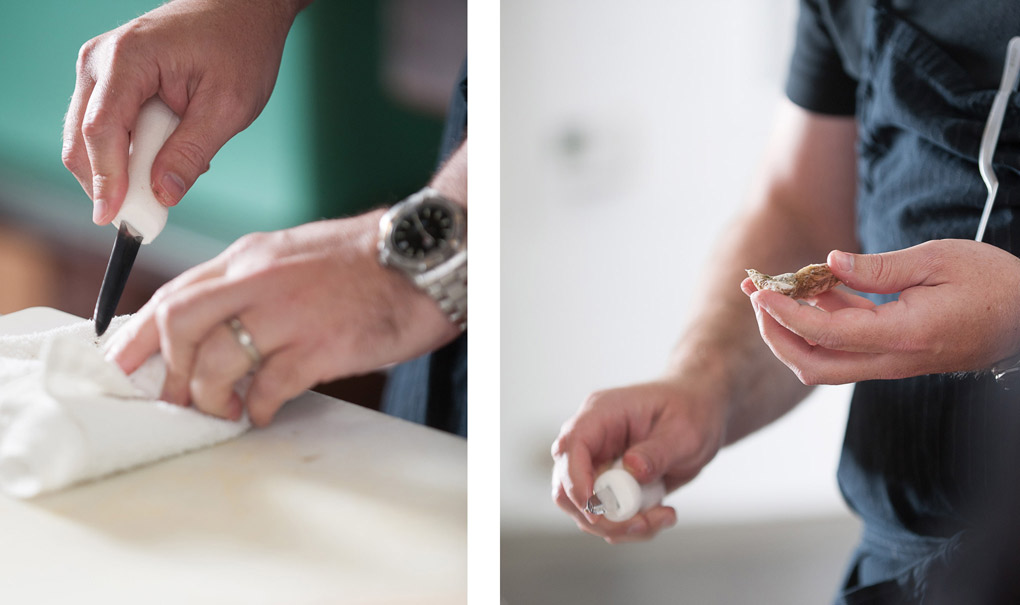
Our chefs appreciate the city's heritage, while enjoying the freedom to stray far from meatloaf and mash — into new regions of the heart, soul, and tastebuds.
Erik came to Chattanooga following Johnson & Wales culinary school, a move that was meant to be temporary. But he saw within the market both opportunity and risk: an expressed desire for something different, and uncertainty as to whether Chattanooga consumers were truly ready for it.
"Our regulars are not a massive group of people. We wait on and serve the same three or four hundred people every week, every month. But we're very much in tune with those guests, and we're learning how to grow that group a little bit more. Whatever extra we get, it's really just a bonus."
Like Erik, restaurateur and chef Miguel Morales came to Chattanooga later in life, bringing a love of coastal South Carolina cuisine and a fervent determination to weave it into the city's food fabric. He opened 1885 Grill last year.
"I grew up with fried flounder and hushpuppies, the kind of food you eat on summertime trips to Charleston. Chattanooga didn't have that, really, and people have taken to it," Miguel says. "For me, the game is using things from your past. We all have such incredibly different backgrounds, and taking something from your walk of life, producing that here is rewarding, for you and the people you serve."
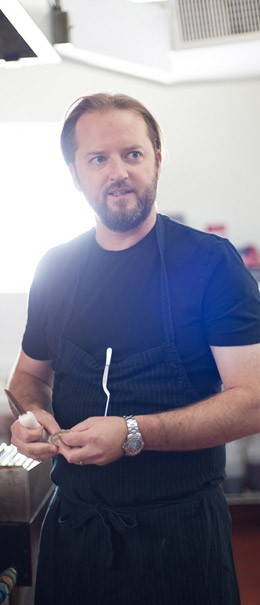
This is not to say that locals are being pushed aside. Not so long ago, home-grown talent had the tendency to drift away, lured to other cities. While that still happens— now, they tend to drift back, and the food scene is reaping the benefits.
A prime example is Daniel Lindley, four time nominee for a James Beard Foundation Award for Best Chef in the Southeast. In his teenage years, a stint as a busboy at a local Southside restaurant — coincidentally, where he met Erik — was the beginning of a life-long career. It took him overseas, to Europe and West Africa; and eventually, to New York, where he worked under world-renowned chefs. But ultimately, it led him home.
"I left my things in New York, thinking I'd move back; I was just going to help my brother open St. John's," Daniel says. "But the local response is what kept me here. It's never been easy, though. Restaurants in Chattanooga don't have lines out their doors. But I think we all identified opportunity a while ago, and that's what feeds us."
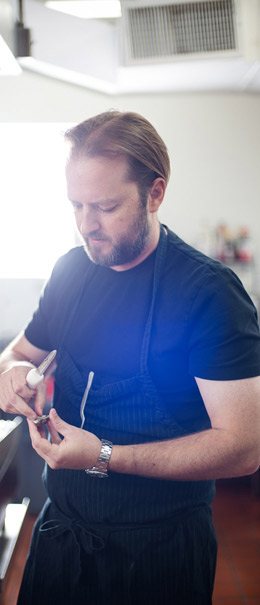
Each of the restaurateurs standing in the kitchen today, and others working around the city — from Susan Moses, one of our earliest purveyors of sustainable food practices to Gentry, who helped drive partnerships with local farms and farmers markets long before it was sexy — seem to share a common knowledge, if not a common goal. They are turning their attention, collectively, back to the city, and asking the same questions: Chattanooga has a food culture, but how is it distinguishable from others in the region?
"At this point in the world, we're known for Little Debbies and Coca-Cola. That's the fallacy of our food scene right now," Erik says. Beginning this year, Erik and his wife Amanda are spearheading the area's first food and beverage alliance, of independently owned and operated restaurants, manufacturers, and artisans. One of their many goals is the creation of a one-of-a-kind Chattanooga Food & Beverage Festival, to accent the city's thriving music and film festivals.
Ultimately, though, the direction that Chattanooga's food scene will take depends on the customers. Requiring restaurateurs to be visionaries — not only knowing what guests want, but also how to shape those wants. So far, so good.
"We're not just in the restaurant business; we're in the entertainment industry," Erik says. "It's about the food, always, but it's more than that. If you're going to survive, here or anywhere, you've got to have heart and soul."
